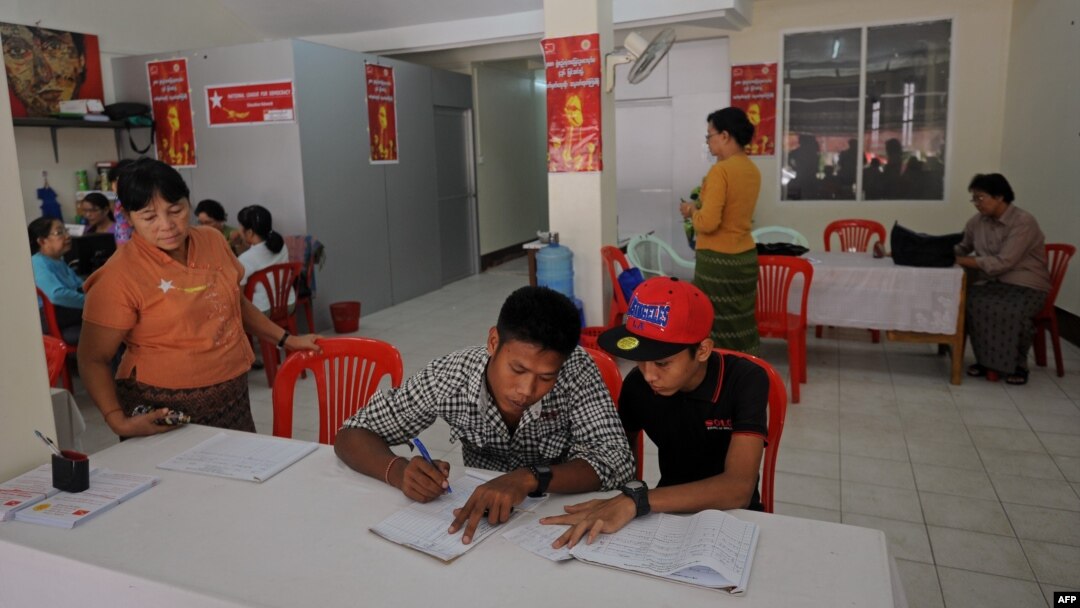Myanmar's main opposition party says it has collected about five million signatures seeking reduced powers for unelected military members of parliament as the country, which emerged from dictatorship in 2011, moves towards an election next year.
The National League for Democracy (NLD), led by Nobel laureate Aung San Suu Kyi, has spearheaded the campaign, which ended on Saturday, to rescind Section 436 of the constitution. That clause requires a 75 percent vote in parliament to amend most sections of the constitution - all but impossible for an opposition party to achieve.
But the NLD's efforts are unlikely to make much of a difference.
Shwe Mann, speaker of parliament, said this month that the petition would not influence the work of a parliamentary committee tasked with recommending constitutional amendments. Shwe Mann is also chairman of the Union Solidarity and Development Party (USDP), made up mainly of former officers.
Striking down clause 436 has been the focus of the drive, which has gained widespread support in the former Burma for a second goal - to enable Aung San Suu Kyi to run for president.
Suu Kyi won the Nobel Peace Prize in 1991 for her pro-democracy efforts and spent most of the next two decades under house arrest where she continued to resist military rule.
Although she remains popular, she is ineligible for the presidency under a constitutional provision which bars candidates with a foreign child or spouse - her late husband was British as are both her sons.
Tun Tun Hein, an NLD official responsible for the petition, told Reuters the party was still counting signatures and predicted the total would likely surpass five million. He said the party would decide how to present its petition to the government once the number was established at the end of July.
The NLD canvassed the country of 60 million for almost two months, tapping into discontent among many who say the military should withdraw from politics after ruling for 49 years.
"Things just went from bad to worse under the rule of the military. Enough is enough,'' said Kyaw Win, a civil servant who stood in drizzle waiting to sign the petition at a streetside booth in Yangon, the country's largest city.
Under the current constitution, 25 percent of the seats in parliament are set aside for the military. And more than half of the rest are held by the USDP.
Myanmar's former ruling junta, which repeatedly cracked down on pro-democracy protests, stepped aside in March 2011. A semi-civilian government has since introduced reforms, including the release of political prisoners.
While the military ceded nominal political power to civilians, including former officers who retired to join the USDP, it cemented its role in government through the constitution it drafted in 2008.
"The present government is related to the previous government and that's why they made this law ,'' said Htay Myint Oo, a sea captain, referring to clause 436, as he added his signature. "We need to amend this law quickly.''


